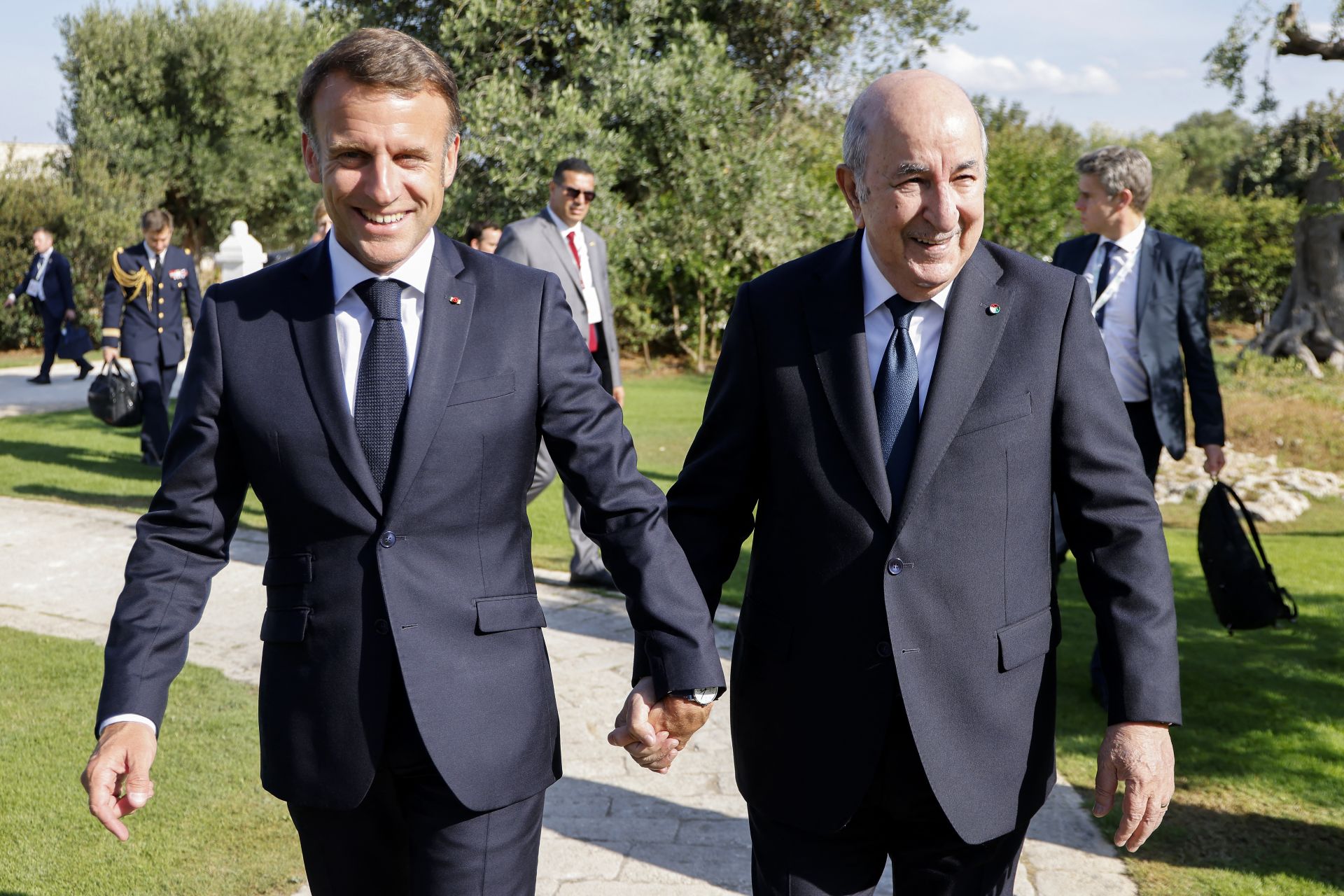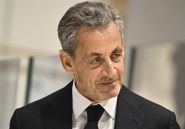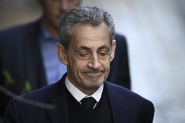- Home
- Middle East
- France and Algeria: Signs of Calm, but No Real Reconciliation

France's President Emmanuel Macron (L) walks with Algeria's President Abdelmadjid Tebboune (R) at the Borgo Egnazia resort, as they attend the G7 Summit hosted by Italy in Apulia region, in Savelletri on June 13, 2024 ©Ludovic MARIN / AFP
In Paris, gestures of goodwill toward Algiers are multiplying, yet no official response has been forthcoming. Are both capitals still on high alert?
In recent weeks, France appears to be cautiously reopening a door long left ajar. In early November, the new Interior Minister, Laurent Nuñez, said he had received an invitation from his Algerian counterpart, a gesture that has yet to be officially confirmed. In Paris, it is regarded as a quiet sign of goodwill. Meanwhile, Foreign Minister Jean-Noël Barrot speaks of “easing tensions” and “cooperation,” words carefully chosen to signal a desire to move past the strains that have built up in recent months.
Boualem Sansal: A Case Straining Franco-Algerian Relations
On June 27, 2025, 76-year-old writer Boualem Sansal was sentenced on appeal to five years in prison and a fine of 500,000 dinars, roughly 3,400 euros. The Algerian judiciary charged him with “undermining national unity,” “insulting state institutions,” “engaging in practices harmful to the national economy,” and “possessing videos and publications threatening the country’s security and stability.” Among the cited incidents was a statement in which he claimed that the borders inherited from French colonization should have been those of Morocco, a remark widely seen as a direct challenge to Algerian sovereignty.
On November 10, 2025, German President Frank-Walter Steinmeier formally requested that President Abdelmadjid Tebboune grant Sansal a pardon on humanitarian grounds. The request, unusually broadcast by Algerian state television, was later confirmed in an official presidential statement.
According to the statement, Tebboune received a request from the President of Germany to grant a humanitarian pardon for Sansal, who has been imprisoned in Algeria for one year. Steinmeier emphasized Sansal’s advanced age and deteriorating health and suggested allowing him to travel to Germany for medical treatment. He added that this gesture would reflect a spirit of humanitarianism and enlightened political vision while underscoring the strength of his personal relationship with Tebboune and the excellence of bilateral relations between the two countries.
In Algiers, state media highlighted that Sansal had previously worked at the Algerian Ministry of Industry under Abdelaziz Bouteflika before acquiring French nationality, a detail largely absent from French reporting.
Cases That Fuel Mutual Distrust
French journalist Christophe Gleizes, 36, currently detained in Algiers, is set to face a retrial on appeal on December 3. Convicted of “glorifying terrorism” and “possessing publications intended for propaganda harmful to national interests,” he awaits a decision that could indicate whether the Algerian judiciary intends to ease tensions or maintain a hardline stance. Gleizes was arrested in May 2024 while reporting on Jeunesse Sportive de Kabylie, an Algerian football club. Authorities accuse him of conducting interviews with a representative of the Movement for the Self-Determination of Kabylie (MAK), classified as a terrorist organization in 2021.
In France, an Algerian consular officer remains in custody in Créteil. He is suspected of involvement in an attempted kidnapping of Amir Boukhors, also known as Amir DZ, a prominent influencer critical of the Algerian government. French authorities are prosecuting him for complicity, while Algiers denies any diplomatic involvement and condemns what it describes as a violation of its immunity. For Algerian officials, Boukhors is not seen as a mere dissident: he is classified as a terrorist and accused of threatening state security and inciting actions against the army.
Another persistent source of tension involves the OQTF cases, the obligations to leave French territory, which Paris claims Algiers has failed to enforce. Under the previous government, France adopted a tougher stance, with statements from Gérald Darmanin and Bruno Retailleau accusing Algeria of refusing to issue the necessary consular travel documents for nationals in irregular situations. This dispute prompted temporary visa reductions and fostered a lasting climate of mistrust between the two capitals.
Cautious Gestures, but No Real Resumption Yet
So far, Algiers has sent no official message. All initiatives have come from Paris, where the new ministerial team is seeking to avoid the tensions of the past. The relationship remains dependent on signals that are sometimes ambiguous but closely watched. Nothing suggests that dialogue will resume soon, yet several experts note that both capitals understand it cannot remain indefinitely frozen.
Read more



Comments